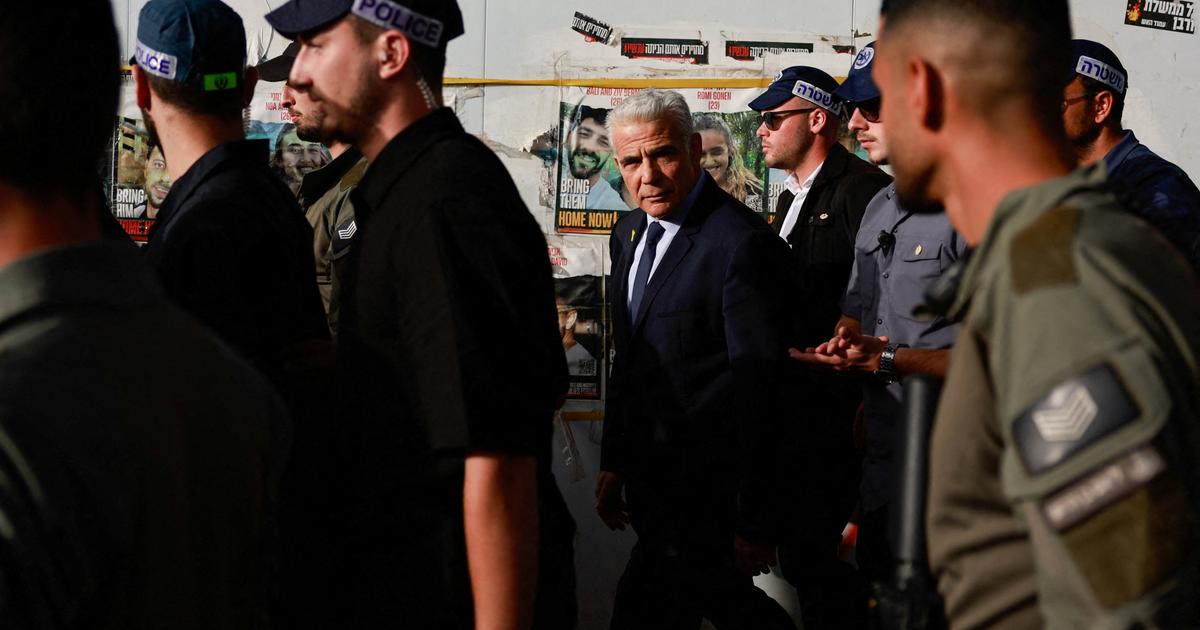Tensions Rise as Israel and Biden Engage on Gaza Hostage Plan
Israeli opposition leader Yair Lapid has extended his support for Prime Minister Benjamin Netanyahu's road map for the release of hostages in Gaza, a strategy previously dismissed by far-right members of the Israeli government. Lapid emphasized the importance of considering President Biden's significant remarks on the issue, urging the government to seize the opportunity for a deal.
Prime Minister Netanyahu emphasized the unchanged 'conditions' for a 'permanent ceasefire,' which include the destruction of Hamas, the release of all hostages held in Gaza, and ensuring Gaza no longer poses a threat to Israel. These statements come as Israel concludes its military operation in Jabalia, a city in northern Gaza where Israeli forces claim to have killed hundreds of terrorists and uncovered substantial weapons caches.
President Biden's proposed roadmap suggests the first phase of achieving a total ceasefire involves an Israeli troop withdrawal from Gaza's inhabited areas for six weeks. Biden's plan also includes the release of specific hostages, particularly women and the sick, as well as Palestinian prisoners held by Israel.
Yair Lapid has urged Netanyahu to move forward with the agreement, expressing his full support for its implementation. This call came despite opposition from hard-line ministers such as Itamar Ben Gvir and Bezalel Smotrich, who have historically resisted any hostage release agreements. Meanwhile, Hamas has deemed Biden's roadmap 'positive.'
The ongoing conflict between Israel and Gaza continues to be marred by military actions and political maneuvering. Recently, Egypt denied reports of an agreement to reopen the Rafah border crossing for humanitarian aid, maintaining that a full Israeli withdrawal is a prerequisite. The border had been closed following an Israeli takeover three weeks prior.
There's been intense debate over the hostage deal between Israel and Hamas. Hamas has stipulated that negotiations will only continue if Israel halts its military operations. They propose a comprehensive exchange agreement involving the release of hostages abducted during the October 7 Hamas attack in exchange for Palestinian prisoners.
Netanyahu's administration remains firm in its stance against ending the war without conditions, describing Hamas's negotiation demands as 'delusional.' As the tension escalates, this conflict in the Middle East remains a focal point of global concern.
- The recent escalation in Gaza follows a devastating airstrike that killed over 40 individuals, prompting widespread criticism of Netanyahu's government. The operation in Jabalia was part of a broader strategy to neutralize Hamas's military capabilities and rescue abducted Israelis.
- On the diplomatic front, Biden's involvement represents significant international pressure on Israel to consider more conciliatory approaches towards a ceasefire. The United States' role underscores the geopolitical intricacies influencing the Israel-Gaza conflict.
- There remains a humanitarian crisis in Gaza, exacerbated by the ongoing conflict and the strict blockade. The closure of the Rafah border crossing continues to hinder aid delivery, posing a dire situation for residents of Gaza.






